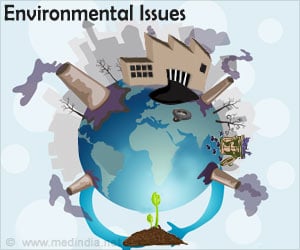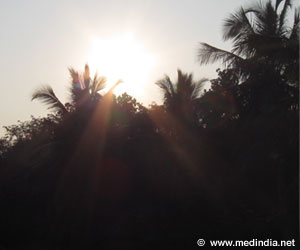
‘After a day's respite, the air pollution level in the Indian national capital again rose to "severe" category in the past week following Diwali celebration.’
Tweet it Now
"With every breath, children in Delhi are suffering. Delhi is a wake up call to the world on air pollution. It is a wake up call to all countries and cities where air pollution levels have resulted in death and illness amongst children. System of Air Quality and Weather Forecasting & Research (SAFAR) showed the level of particulate matter 2.5 - which can travel deeply into the respiratory tract down to the lungs - at 438 micrograms per cubic metre at Delhi University in north Delhi, it was 419 micrograms per cubic metre at Pitampura in west Delhi and 447 micrograms per cubic metre at Mathura Road.
However, at Lodhi Road in south Delhi the level of PM 2.5 remained 339 as it was on Thursday and categorised as "very poor". At the pollution measuring centres of CPCB including Anand Vihar in east Delhi, Punjabi Bagh in the west, R.K. Puram in the south and Mandir Marg in central Delhi the average value of PM 2.5 pollutant was 454, 437, 419 and 414 micrograms per cubic metre.
The maximum temperature on Friday settled at 30.1 degrees Celsius, one notch above the season's average whereas the minimum temperature was recorded at 11.5, three notches below the season's average. "The sky will remain clear on Saturday but mist or shallow fog would occur in the morning. The maximum and minimum temperatures would be around 30 and 14 degrees Celsius respectively on Saturday," an India Meteorological Department (IMD) official said.
Unicef had said in a recent analysis that globally 300 million children live in areas with the most toxic levels of outdoor air pollution - exceeding six times international guidelines. It emphasised that nations need stronger measures to cut back on the sources of air pollution, which cannot be contained within borders and spreads across regions.
Advertisement
Source-Medindia











